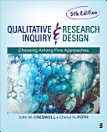Researching Violence, Democracy and the Rights of People
About this ebook
Research is fundamentally entwined with the political, the ethical and the legal. When it presumes the neutrality of method and ignores its radical roots of inquiry, it is in danger of being politically co-opted and ethically naïve. Research that reveals what is at stake politically, ethically and legally is typically open to accusations of being partisan and therefore political. It cannot avoid being political in the broadest sense of the word, and consequently the researcher cannot escape – through some mystical notion of being ‘objective’ – the political, ethical and legal consequences of undertaking research.
Research is vital to the construction of public spaces for debate, decision making and action. Hence, there is a close relationship between methodological practices, research design and the conditions under which violence, democracy and rights can be addressed.
Researching Violence, Democracy and the Rights of People explores what is at stake methodologically (both theoretically and practically) for researchers seeking to expand opportunities for people to become visible upon the public stages of debate, decision making and action, and thus make audible their experiences of wrongs and injustices, express their rights, and engage democratically in processes of change.
Drawing on international contributions and contexts, this book introduces readers to the complex realities of real research and the substantive issues that their methodological approaches strive to deal with. It will benefit undergraduate and postgraduate students as well as post-doctoral and experienced researchers across a range of cultural and social science disciplines, as well as educational and sociological researchers. Its aim is to explore and contribute to the development of innovatory approaches to engaging in research that make a difference in the lives of people.
About the author
John F. Schostak is Research Professor of Education at the Education and Social Research Institute, Manchester Metropolitan University.
Jill Schostak is Visiting Fellow at the School of Education and Lifelong Learning, University of East Anglia, and most recently has undertaken contract research with the College of Emergency Medicine.




